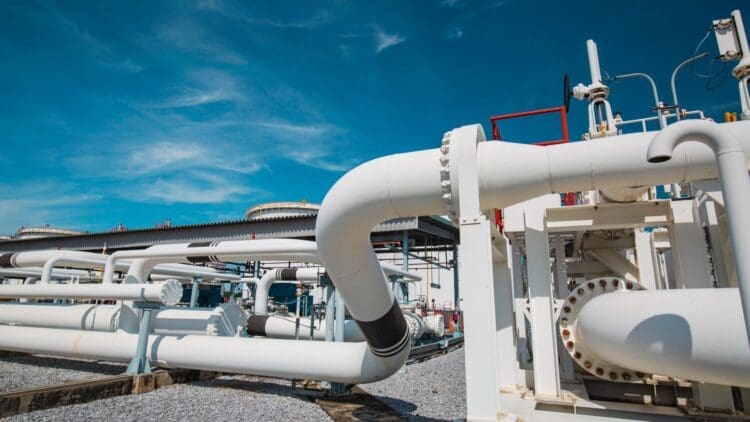As winter approaches, the high-energy usage nations of the northern hemisphere are expected to see an increase in energy consumption. Reports have now emerged from several sources that state that the Rhone pipeline shutdown, along with several strikes in France, has curbed France’s LNG intake this winter. France is among the nations the European countries that rely on the gas sector to provide energy to meet demand, along with the increase in nuclear energy reliance.
Europe is phasing out the reliance on Russian-made LNG to meet energy demand
The Ukraine war has devastated the European region. Not only are many people dieing or have been dispalced, but the inevitable effect on the European energy sector has been as clear as day. Several nations have opted to phase out Russian gas as the war rages on with no end in sight. Russia has seen long lines at gas stations, exemplifying the issues faced by the European energy sector.
France has now stated that it expects a decline in LNG intake this winter due to a shutdown on the Rhone link, limiting the country’s energy flexibility. France has an exceedingly diversified energy sector as more than half of the country’s energy consumption comes from the renewable energy sector.
The outage at the Rhone link will reduce total supplies by about 43.5 terawatt hours over the winter, which is equivalent to approximately 11 days of France’s total winter gas demand. NaTran, which is France’s gas operator, noted that an “incident” was responsible for the outage on the Rhone link, while not giving specific details.
“Transit on the Rhone artery has been interrupted until at least the end of the coming winter following an incident on the network on 26 September.” – NaTran spokesperson
France’s proclivity for strikes have also placed pressure on the LNG sector flow
France is universally known for its proclivity to strike. Workers have the reputation for striking and halting operations across several sectors. The Rhone link boasts a capacity of 160 gigawatt hours per day. Additonally, the shutdown has been exacerbated by ongoing strikes at the Fos-sur-mer and Montoir-de-Bretagne LNG terminals over pay.
S&P analyst Diane Elijah stated that “the strikes have disrupted cargoes to the terminals, operated by Elengy, over the last six weeks, with flows from Fos Cavaou resuming on September 28 after a request from NaTran to Elengy to avert supply risks”.
WIth strikes at Fos and Montoir set to end soon, disruptions are set to curb France’s LNG output for the months to come, as noted by industry insiders.
“The end of strike actions at Montoir and Fos is expected to bring more predictability as the market moves deeper into the winter season.” – LSEG analyst Yuriy Onyshkiv
EU gas network operator ENTSOG noted that flows through the impacted entry point would be capped at around 239 GWh per day, which is approximately half of Fos’s technical capacity. As Europe phases out Russian-made gas, France will need to navigate the strikes and shutdown at the Rhone link in order to bring back its regasification of its energy sector.
Europe is facing a very cold winter as the Rhone link shutdown continues
The shutdown of the Rhone link along with the strikes at several energy production sites over pay has resulted in a reduction of energy production in France. France will opt to lean on the renewable energy sector to compensate for the reduction in gas supply. A recent innovation in the battery storage sector may alleviate the pressure being put on the French energy sector, however, if the market is to recover, more work will need to be done to move past the strikes and outages and towards a winter that is warmed up through essential gas around France.






